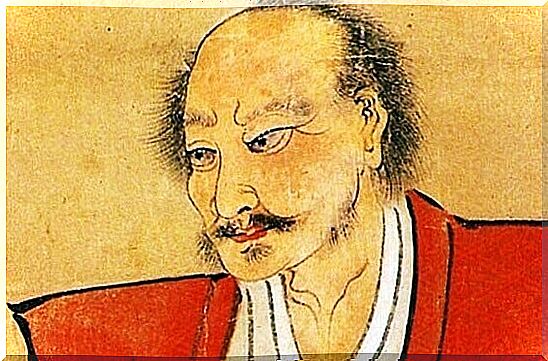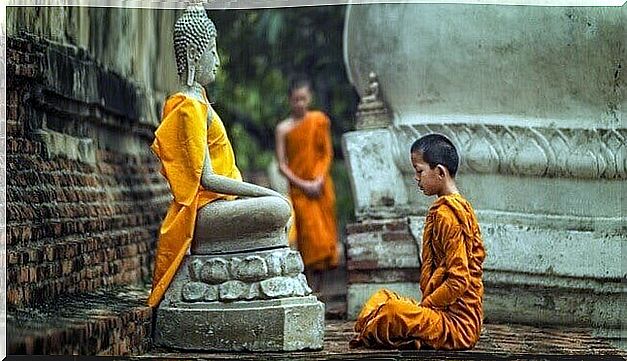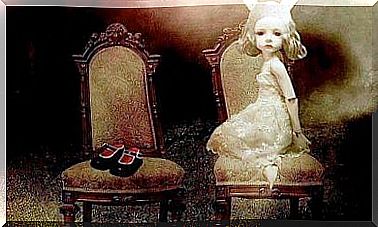The Rules Of Life According To A Buddhist Master

Miyamoto Musashi was a famous samurai warrior who lived during the Japanese feudal era. He is the author of the very famous book The Book of the Five Rings and is also known for having compiled a list of rules of life two weeks before he died.
As an oriental warrior, for Miyamoto, fighting was more than just a fight. The samurai, in fact, attach great value to personal development because it is the only way to become good warriors.
The rules of Miyamoto’s life have been handed down over time and collect the wisdom of those who lived with valor and fought in the name of noble causes. We have summarized the rules of the Buddhist master in ten tips that we illustrate in this article.
1. Acceptance
The first rule of life is to accept life as it is. Acceptance does not mean resignation, but humility. We cannot change life and our attitude towards it depends on us, as well as learning from circumstances over which we have no control, but with which we have to live.
If reality is not accepted, the consequence is perennial suffering that gives rise to an inner battle from which no one ever wins. Accepting life, on the other hand, is the right way to learn something from every situation.
2. Think little of yourself and much more of others
Those who stop to think too much about themselves eventually get confused : they build a wall that separates them from the rest of the world and feeds their insecurities. More than thinking about yourself, you should be yourself.
True happiness consists in helping others. Nothing is more satisfying than a good deed. Even those who are generous give good proof of themselves. This allows you to appreciate yourself for who you are.

3. Learn to get rid of desire
Desire, understood as craving for what you don’t have, only leads to dissatisfaction. The more you have, the more you want. The desire to have, to possess is like a bottomless pit that is increasingly difficult to satisfy.
Miyamoto, like many other oriental masters, has struggled to eliminate desire, convinced that the more he desires, the more he is the victim of frustration. The real power lies in the ability to give up. Those who need little are happy with little.
4. Avoid giving room to remorse
Repentance causes great suffering and the worst part is that it is unnecessary suffering. This is what Miyamoto teaches with his rules of life. It invites us not to see error as a condemnation, but more as a characteristic of human nature.
Every action we take teaches us something. In a way it changes us. If we have done wrong, we have learned a great lesson. For this reason, nothing we have experienced is to be despised, the important thing is to be able to draw a lesson from it and enrich our wealth of experiences.
5. Say goodbye to complaints and grudges
Complaints do nothing but attract and spread negative energy. It makes no sense to complain because, instead of pushing to act, it ends up paralyzing.
According to Miyamoto’s rules of life, complaints and grudges are a poison for those who feed them, they do not serve any good. On the contrary, over time they turn out to be a plague that destroys even positive feelings.

6. Put aside the things you don’t need
Objects affect our emotions and our way of seeing life. If we get too attached to material things, they will eventually take control over us. In our consciousness we feel less free.
This is especially true for things that we no longer need, but that we keep. They only make us more insecure and rigid. This is why the rules of life invite you to get rid of useless things.
7. Don’t blindly follow the beliefs of others
Ultimately, it is a question of having faith in our ability to judge, in the common sense that belongs to us. We must respect our beliefs and values, otherwise we become easily manipulated.
Nobody needs someone to tell what’s right and what’s not, we all have the ability to decide for ourselves. If we blindly follow others, we betray ourselves.
8. Always keep your honor
Honor is a forgotten word. It’s about self-love, avoiding behaviors that are in contrast with the values we believe in and defend. Values are a kind of compass, they give space to pride when you resist temptation.
Honor is the most precious thing anyone has. A person of honor arouses respect and consideration, attracts the goodwill and respect of others, even enemies. This is how honor gives value to life, a very intimate and personal value.

9. Love must not be tainted with attachment
Emotions are usually impulsive responses. When they are reasoned, we speak of feelings. Feelings are deeper and more thoughtful, associated with values and not with needs or needs.
Love is an extraordinary feeling, but sometimes we also call love a blind and fleeting emotion. It happens when what fuels love is actually the desire for something or attachment and it certainly does not do well, quite the opposite.
10. Don’t be afraid of death
We are mortal, it is a fact. Life ends and this is a natural reality. We must not be afraid of dying or that the people we love will die. The fear of death is overcome by living intensely every moment of life.
The rules of Miyamoto’s life have survived the passage of time precisely because of the great wisdom they contain and for everything positive they inspire. They are a hymn to realism, humility and inner peace. They invite us to focus on the essence of life and not on appearances.









